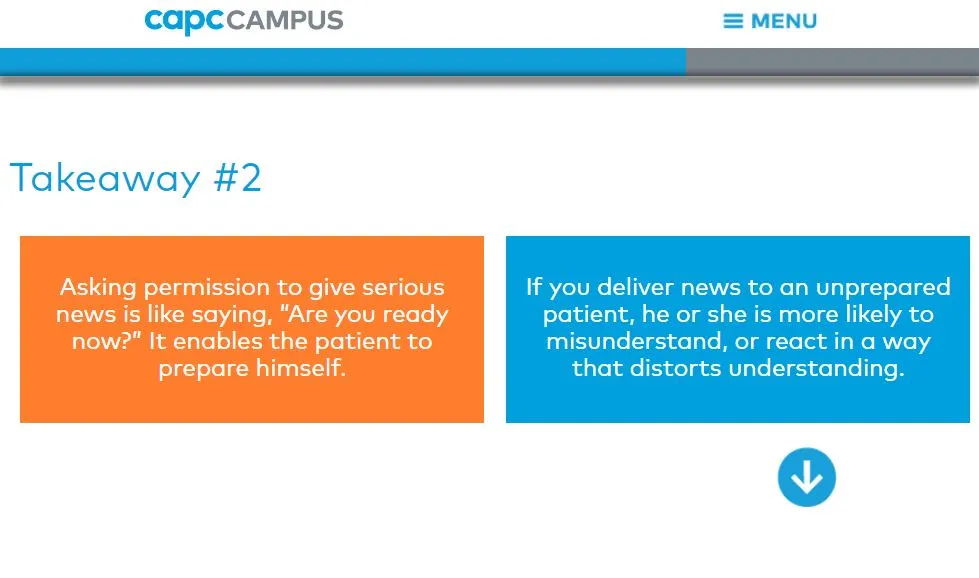How We're Aiming to Improve the Care of Serious Illness
As we celebrate CAPC’s 20th anniversary, we can reflect on the field’s success in expanding access to palliative care nationwide. It has seen rapid growth over those two decades, particularly in hospitals, but increasingly in community-based settings, as well.
We also acknowledge that millions of Americans who need palliative care still don’t get it. How can we bring it to scale? What will it take to go from where we are now, as a recognized medical subspecialty, to where we need to go, which is expanded access to the principles and practices of palliative care?
To kick off this 20th anniversary year, CAPC has launched a national campaign—Project Tipping Point—which was introduced during a recent online briefing by our founder and director, Dr. Diane E. Meier. We are challenging CAPC’s organizational members and their professional staff to help the system achieve the tipping point where palliative care principles and practices are so widely disseminated across settings and locales, and so interwoven into standard care delivery, that they would be the norm, not the exception. A tipping point is a critical point in a situation, process, or system where its momentum has become irreversible.
A tipping point is a critical point in a situation, process, or system where its momentum has become irreversible.
A Five-Year Campaign
CAPC’s five-year campaign to drive palliative care innovation throughout the U.S. health care system has two goals: (1) enhancing knowledge and skill among all specialties and disciplines treating people living with a serious illness and (2) increasing access to quality palliative care services across the full continuum of care—in the hospital, at home, in office practices, and in long term care settings.

How it Works
We are developing a series of yearly measurable goals for Project Tipping Point, and year one is focused on the frontline clinical work force in an effort to ensure that virtually all clinicians and organizations that care for patients living with a serious illness have the core knowledge and skills that they need to meet their patients’ needs. Those skills include symptom management, the safe and effective use of opioids, effective communication skills, such as delivering serious news and establishing goals of care with patients, and understanding and addressing the real needs of patients and families.
CAPC member organizations are automatically entered into the Tipping Point Challenge, a competition to see who can achieve the greatest number of course completions by their staff, and the greatest number of CAPC designations, which require completing all of the courses offered in a given subject area—pain management, symptom management, or communication skills—either within the 2019 calendar year or since becoming a CAPC member organization. Members will compete with similar settings in one of nine categories.CAPC member organizations are automatically entered into the Tipping Point Challenge, a competition to see who can achieve the greatest number of course completions by their staff, and the greatest number of CAPC designations, which require completing all of the courses offered in a given subject area—pain management, symptom management, or communication skills—either within the 2019 calendar year or since becoming a CAPC member organization. Members will compete with similar settings in one of nine categories.
The Ultimate Goal
The goal of the Tipping Point Challenge—a cornerstone of our new campaign—is to help get to the tipping point within each of CAPC’s more than 1,300 member organizations. That means at least 25 percent of all clinicians will have training in core skills using, for example, the 35 clinical courses offered on CAPC’s website. These are online interactive self-study courses of thirty-six to sixty-five minutes each in length. Continuing education credits for each course are free for physicians, nurses, physician assistant, social workers, case managers, and licensed professional counselors.
The Time Is Now
The time for this expansion is now. We have all done the spade work and preparation. We have built a recognized field and a medical specialty. Now we need to scale it up more broadly, not just for palliative care specialists, but so that all clinical professionals have the core knowledge and skills that their patients need.
Health professionals, hospitals, and other health organizations are already measured and publicly reported on core aspects of care during a serious illness, including responsiveness to pain and symptom distress, and quality of communication with doctors and nurses. One example is the Medicare-required patient experience family of surveys CAHPS (Consumer Assessment of Healthcare Providers and Systems) but there are many others.

Skill in providing symptom management and communication is also required as a competency in many residency training programs. Clinicians and health organizations are being measured and publicly reported delivery of these core skills; but not all have had the necessary training. That training is now available and scaleable at very low unit cost through CAPC’s online curriculum.
The impact of better training for clinicians could include reductions in burdensome, unnecessary and potentially harmful interventions, and fewer days of hospitalization.
The impact of better training for clinicians could include reductions in burdensome, unnecessary and potentially harmful interventions, and fewer days of hospitalization, with patients winning more days at home, with better support for their families. Our vision is that all clinicians have the knowledge and skill to meet the real needs of their patients with serious illnesses and thereby get more joy and satisfaction in their work—with a powerful reminder of why they went into the health professions in the first place. But it’s going to take every one of us pulling together to reach that goal.
And now a message from Dr. Diane E. Meier…
CAPC wants you to lead the charge for change. Learn more and meet the Challenge today. For more information and access to the curriculum, go to capc.org. If your organization is not yet a member of CAPC, please consider joining. Membership rates vary by type and size of organization.